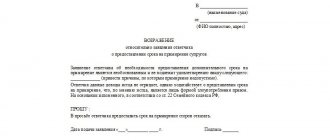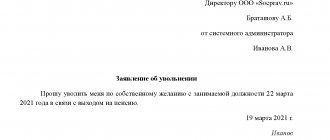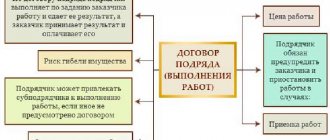“We invite you to a working meeting - a conversation; commission for legalization of the tax base; reconciliation of calculations..." - it is impossible to list all the options for how the tax authority invites the taxpayer. But there is one that is worth talking about separately - the interrogation of a witness. There are a lot of questions that arise in your head: “Is it worth going for interrogation?”, “Should I take a lawyer with me?”, “What will happen if I don’t go,” etc.
Outwardly, an interrogation is often no different from an ordinary pleasant “conversation,” but it is the interrogation protocol that has the force of evidence in a tax audit.
It’s time to remind you that what is written with a pen often cannot be “cut down” either with a woodworking tool or with other evidence that refutes such testimony.
taxCOACH experts suggest examining the questions that arise immediately after receiving a subpoena for questioning. Although, does there have to be an agenda...?
Are tax officials required to serve a subpoena?
It depends on whether the witness will be invited to the tax authority or whether the tax inspector plans to conduct the interrogation at the taxpayer’s premises or even on the street.
In the first case, it is obvious that the witness must be invited somehow, and the Federal Tax Service of the Russian Federation recommends doing this with a subpoena. But the tax inspector himself can come to the witness, then the absence of a subpoena is not a violation of the Resolution of the Arbitration Court of the Ural District dated October 20, 2016 No. F09-9287/16 in case No. A76-26441/2015.
What if a subpoena was issued, but was not received by the person summoned?
The possibility of holding a person accountable for failure to appear or evasion of appearing for questioning will depend not only on the very fact of receiving or not receiving a subpoena, but on the reasons why the subpoena was not received.
If there was an objective obstacle that prevented the receipt of the summons, for example, the summons was sent by the tax authority, but due to the fault of the post office the correspondence was not delivered, then the summoned person will not be held accountable.
If the summons was not received, for example, because the person does not live at the place of registration, then failure to receive the summons will not be recognized by the court as a valid reason for failure to appear for questioning. Appeal ruling of the Supreme Court of the Chuvash Republic dated May 4, 2016 in case No. 33a-2144/2016.
Let us remind you that when sending a summons by registered mail, such a letter is considered received on the sixth day from the date of sending the registered letter.p. 4 tbsp. 31 Tax Code of the Russian Federation
Will I have to sign something there?
Phew, is this the last question you ask? Meanwhile, he is the most important. After all, to paraphrase a famous statement attributed to I.V. Stalin, it doesn’t matter what you told the investigator - what matters is what he wrote down .
This document, in which he recorded your testimony, is what you will need to sign. And it’s called the protocol of interrogation of a witness . And it was for this reason that the investigator called you to his place. This is what it is - evidence obtained during interrogation. And not your words, which the wind carried out the window behind the investigator’s back.
you will have to answer for what is written in this protocol . Precisely because you sign up for it.
Where will you have to answer? In court, where you will then be called in for questioning. After all, the interrogation with the investigator, where you have now been invited, is carried out during the preliminary investigation. And then in court there will be a judicial investigation, and there you will also be interrogated. I have already said: do not believe the investigator who convinces you that they will not call you...
And you will stand in the center of the hall alone, without a lawyer, behind the podium. Behind you will be the relatives of the defendant, who are extremely negative about everything that is happening. On one side of you will be an evil prosecutor (and perhaps more than one). On the other hand, there is an equally evil lawyer (also, perhaps, more than one). And they will pester you with their questions. Do you remember that you are the “ball” in this game? And right in front of you will be a strict judge in a black robe (and, perhaps, more than one), who also has no sympathy for you.
And they will rub your nose into the protocol of your interrogation drawn up by the investigator. Is this your signature?.. Did you give such testimony to the investigator?.. What do you mean “wrongly recorded”?.. What do you mean “the investigator said it was not important”?.. Did you read the protocol?.. Why did you read it? signed if your testimony is presented here incorrectly?.. How is it that “the investigator forced”?.. Did he threaten you?.. With what?.. Do you even understand what you are saying?.. You were warned about criminal liability for knowingly false testimony?.. Why are you giving different testimony now?.. What do you mean “didn’t read the protocol carefully”?.. Is it your signature, I ask again?..
And you will alternately blush and turn pale. This torment can last an hour or more. And anything can happen to you - from diarrhea to a stroke. And why all? Because you were irresponsible in drawing up a protocol of your interrogation in the investigator’s office. You were glad that the interrogation was over and you would now be released. That’s why they either didn’t read the protocol, or read it diagonally, or simply “waved it without looking.”
And the life of a person depends on its content, whose fate will be decided in the courtroom. Therefore, do not expect mercy from its participants - they will tear it apart “like an ace of a hot water bottle.” And perhaps more than once.
The conclusion, I think, is clear. Read the protocol before signing it. And very carefully. Don't forget your glasses.
The environment in the investigator's office is more comfortable than in the courtroom. You and him are one on one. Take your time. If you also have a lawyer next to you, who will also carefully read the protocol, this will be a premium comfort. There are two of you against one investigator. Well, it can't be compared to what awaits you in court.
Who may be called to testify?
“... any individual who may be aware of any circumstances relevant to the implementation of tax control” (subparagraph 12, paragraph 1, article 31, paragraph 1, article 90 of the Tax Code of the Russian Federation). The key words here are “any individual”.
The list of persons who cannot be interrogated is limited by clause 2 of Art. 90 of the Tax Code of the Russian Federation for only two categories of persons:
- Persons who are not able to correctly perceive circumstances that are important for tax control (children under the age of 14, deaf, blind, deaf-mute, mentally ill persons under the influence of alcohol or drugs).
- Persons who have received information about the taxpayer in connection with the performance of professional duties, and such information is subject to a regime of professional secrecy (lawyers, auditors, notaries, and even doctors and clergy).
Can interrogation only be part of a tax audit?
Is it possible to conduct an interrogation before the inspection, during its suspension and after its completion?
The Tax Code of the Russian Federation again does not give an unambiguous answer.
In July 2013, the Resolution of the Plenum of the Supreme Arbitration Court of the Russian Federation dated July 30, 2013 No. 57 was issued, in which the following explanations were given (clauses 26, 27 of the Resolution):
- The interrogation can be carried out before the start of the tax audit;
- during the suspension of a tax audit, interrogation of the taxpayer’s employees is not allowed, but only on the territory of the taxpayer;
- at the same time, during the suspension of the inspection, interrogation is possible outside the taxpayer’s territory.
As for conducting interrogations after the end of a tax audit, the approaches in judicial practice are different, but the following trends can be identified:
- The interrogation protocol drawn up after the end of the audit, but before the decision is made, is not adequate evidence if the taxpayer has not been familiar with it. Resolution of the AS VSO dated November 1, 2018 No. F-02-5141/2018 in case No. A33-32012/2017 The reasoning can be continued: if the witness was familiar with the protocol, then such a protocol is admissible as evidence;
- the interrogation protocol drawn up after the end of the tax audit (during the consideration of the case by the court) is inadequate evidence; Resolution of the Arbitration Court of the Volga District dated February 13, 2017 N F06-7969/2016 in case No. A55-11768/2015; Resolution of the Arbitration Court of the Central District dated August 16, 2019 No. F10-3403/2019 in case No. A62-8847/2017
- Interrogation protocols drawn up after a decision was made based on the results of a tax audit cannot be considered adequate evidence, except in cases where the tax authority could not conduct an interrogation during the audit. Resolution of the Arbitration Court of the West Siberian District dated 06/07/2019 No. F04-2040/2019 in case No. A67-8642/2017.
I'm afraid... Can I come to the interview with a friend or relative? What about a lawyer you know? What about a lawyer?
The friend will not be allowed in for questioning. Out of the kindness of their hearts, they may be allowed inside the investigative agency, but they will not be allowed into the office for interrogation.
In this sense, a relative is no different from a friend, with one exception: “children under 16 years of age” are interrogated in the presence of their parents (one of them), as well as a teacher or psychologist (Article 191 of the Code of Criminal Procedure of the Russian Federation).
A lawyer (a person with a legal education) does not have any privileges compared to a friend, and he will also not be allowed in for questioning.
But a lawyer (a lawyer who has received the status of a lawyer and has the appropriate certificate) can completely officially participate in the interrogation to provide legal assistance to a witness (Part 5 of Article 189 of the Code of Criminal Procedure of the Russian Federation). Choose a lawyer, enter into an agreement with him and - go ahead! Don't forget your passport...
Does the person being interrogated have any rights or guarantees?
The Tax Code of the Russian Federation does not regulate in detail the procedure for interrogating a witness, however, in this case, in our opinion, it is possible to use the norms of the Criminal Procedure Code of the Russian Federation by analogy.
The following restrictions apply to the interrogation procedure:
- The interrogation cannot last continuously for more than 4 hours;
- Continuation of the interrogation is allowed after a break of at least 1 hour for rest and eating;
- The duration of the interrogation should not exceed 8 hours during the day;
- The interrogation of a witness cannot be carried out at night (from 22:00 to 6:00 local time).
Is it possible to refuse to testify?
Yes and no.
Many are familiar with Article 51 of the Constitution of the Russian Federation, according to which no one is obliged to testify against himself, his spouse and close relatives. Close relatives include: spouse, parents, children, adoptive parents, adopted children, siblings, grandparents, grandchildren.
In practice, everything is not so clear.
If a person is a shareholder (participant) or director of a legal entity being inspected, the courts indicate that the testimony of such an individual does not affect his legal rights and interests as an individual, since they are related to the financial and economic activities of the company. Refusal to testify to all questions, regardless of their meaning, indicates a person’s deliberate obstruction of the exercise of the powers of the tax authority.
Conclusion: you should not refuse to give evidence using the continuous method. You can use the right provided for in Article 51 of the Constitution of the Russian Federation, but this must be done selectively, assessing each question to determine whether it affects the witness being questioned or his close relatives.
Checking readings on site
The law establishes that the purpose of the inspection is to establish new circumstances relevant to the case.
Checking the readings on site is carried out in the following order.
The accused, suspect, witness or victim indicates the place where the event being verified took place, while enjoying complete freedom to choose the route of movement, indicate the place itself and its individual details, etc.
Each of them provides explanations about the circumstances being verified. The investigator compares the testimony given with the scene of the event observed by him, and establishes certain factual data.
These data make it possible to objectively confirm or refute the explanations of the person whose testimony is being verified, and to verify their reliability or inconsistency with reality.
During the inspection, any interference in its progress is unacceptable, including through leading questions.
During the inspection, actions should not be carried out that degrade the honor and dignity of an individual, as well as pose a danger to their life and health.
We suggest you read: How long does sick leave last for pregnancy and childbirth?
The on-site verification of testimony is documented in a protocol that must meet the requirements of Art. Art. 166, 167 Code of Criminal Procedure of the Russian Federation.
To compile the basis of a criminal case, the investigator needs to find out as much information as possible, which will allow him to form a framework for the material. Moreover, an experienced investigator will seek to obtain the information he needs by any of the available methods. And here it is important to mention Article 51 of the constitution, on which the rights of a witness during interrogation by an investigator are based not to testify against themselves and their loved ones.
That is, the refusal should not be simply at will or in the form of attempts to avoid answering, but with a direct focus on this article. But even in this case, the investigator’s tricks can be used. For example, he can reassure by saying that his questions are not directly related to the case or do not concern relatives. Therefore, as it may seem, they are not covered by Article 51.
And this is a really unpleasant situation, and it is precisely the tactics previously drawn up together with the lawyer that help you get out of it competently. Because even during the interrogation process, it can be difficult for an inexperienced person to determine where the interests of himself and his loved ones lie, and where the investigator is really trying to find out neutral information.
Pressure can be physical and psychological. Techniques of the first type are more often used by operatives, while investigators act more subtly, using psychological pressure. If the investigator resorts to physical methods of influence, the widest possible circle of people should be informed about this, the first of whom should be lawyers and relatives.
Directly during such pressure, you can simulate a loss of consciousness, complain of malaise, etc. At the first meeting with a lawyer, you must agree on an examination that will record traces of beatings. Other pressures must also be documented. But these are the most radical methods of interrogation, which are rarely used in widespread practice.
As for the psychological impact, in this case the situation is much simpler. It is best to demonstrate knowledge of your rights and a clear position from the very beginning. That is, take the initiative to establish the tone of the conversation into your own hands. For example, if the accused is being interrogated, then from the first words you need to refuse to testify until evidence of guilt is presented.
There is another technique that will help reduce the investigator’s possible desire for psychological pressure. This is the creation of a so-called fairy tale, that is, a version that does not contradict the currently discovered facts and may well be confirmed. Such stories slightly dull the vigilance of investigators and often discourage them from obtaining additional information.
Can I send a lawyer or a representative by proxy in my place for interrogation?
A witness has the right to use legal assistance when giving explanations as a witness, but not to replace himself with another person, including a representative by proxy. Interrogation of a representative (lawyer) instead of a witness is unacceptable, regardless of whether he has a power of attorney providing for such powers (decision of the Federal Tax Service of Russia dated April 11, 2018 No. SA-3-9 / [email protected] ).
At the same time, the Federal Tax Service of the Russian Federation does not deny that a lawyer has the right to make comments that must be included in the protocol or attached to the case. But the witness gives answers to questions during interrogation independently (letter of the Federal Tax Service of Russia dated October 30, 2012 No. AS-3-2 / [email protected] ).
How and what to say during interrogation by an investigator?
There are several universal rules that should be followed, regardless of the position agreed upon with the lawyer. They should be used especially by those who, for one reason or another, could not take care of their defense in advance or do not trust the state lawyer. First of all, you need to tell as little as possible, and the information should be unambiguous.
This is also important for the person being interrogated, since he himself will clearly understand what picture is being built. The question of how to behave during interrogation by an investigator in order to create a feeling of sincerity and believability is also important. After all, if the investigator understands that part of the information is being hidden, then the further course of the interrogation will be even more cunning with the goal of extracting the hidden information.
We invite you to familiarize yourself with: What are the features of carrying out SOUT at similar workplaces?
There are no optimal recipes for portraying credibility, since during interrogation the psychological state of people is already distorted. But in any case, truthful information should be given - at least, with elements of silence in accordance with Article 51. And what should definitely be avoided is lengthy discussions.
In the future, their essence can be turned in different directions, which the same witness may not be aware of. In the question of how to respond during interrogation by an investigator, the emotional aspect is also important. Attempts at pressure, albeit hidden, are one of the most common tools of investigators, which often achieves the expected result. This is worth talking about separately.
Both witnesses and lawyers and the investigator initially form their own tactics of behavior that will be most effective in the case of a particular person. However, some techniques may be provocative and misleading. Therefore, any warnings that may be used to intimidate the investigator in case of refusal to cooperate should be questioned.
Conversely, these may be soft and friendly offers with a promise of release in the case of the accused. How to behave during interrogation by an investigator in such cases? It is enough to use a simple rule: to be indifferent to various proposals, without showing your interest, but also not to reject them.
Do you even need a lawyer during interrogation?
The participation of a lawyer or other consultant when questioning a witness will never be superfluous. The representative, of course, does not have the right to answer for the witness, but a qualified representative will see incorrect questions, will not allow pressure to be put on the witness, or can stop the actions of the inspector who exceeds his authority.
Thus, a lawyer (representative) can ensure that the interrogation does not take too long, help the witness with answers, who will then broadcast them to the inspector, and check whether the witness’s answers are recorded correctly in the protocol.
Preparing for interrogation
The upcoming interrogation is notified by a subpoena, which must be carefully studied to determine your status as a participant in the case.
Even before going for interrogation, you should hire a lawyer who will defend you. It is he who will have to initially contact the operational department or directly the investigator in order to find out the essence of the case and the issues for which his ward is being called. Such information is provided only to the lawyers of the participants in the case, but there are cases when they are also denied. In any case, going to an interrogation without having an idea of the reasons for the call is extremely undesirable. How to be? How to behave during interrogation by an investigator if the lawyer was unable to obtain preliminary information in advance?
What liability awaits a witness for refusing to testify?
The Tax Code of the Russian Federation provides for the liability of a witness for failure to appear, or evasion of appearing without good reason, in the form of a fine in the amount of 1,000 rubles, and for unlawful refusal to testify, as well as giving knowingly false testimony in the amount of 3,000 rubles.
There is no criminal or administrative liability for failure to appear and giving knowingly false testimony during interrogation as a tax control exercise, although the standard form of the interrogation protocol warns to the contrary.
However, if, along with a tax audit, a criminal case is initiated, then criminal liability is already provided for in Art. 307, 308 of the Criminal Code of the Russian Federation.
How to behave correctly in court. Part 1. You are a witness.
lawyer Savich Olga Dmitrievna, February 28, 2014 Phone: +375296486816
Minsk City Bar Association
Have you been summoned to court as a witness or victim, or perhaps as a party in a civil case?
The recommendations below will help you navigate and feel more or less confident.
Part 1. You have been called as a witness in the case.
Regardless of whether you are a witness in a civil or criminal case, most of the rules and recommendations will be general.
The first thing you need to remember. Even if you don’t want to come to court at all, you are busy, etc. etc., - appearing in court is your civic duty and obligation, the violation of which can lead to very serious consequences (for example, in relation to you, the judge may issue a ruling on forced bringing, the essence of which is to ensure your appearance will be assigned to the internal affairs bodies, and you will most likely have to appear in court accompanied by them; you may be held administratively liable for contempt of court, etc.).
If you cannot appear in court for objective reasons (for example, you are in another city on a business trip, you have a small child, you are sick, etc.), you should definitely notify the court about this in advance. As a rule, the summons you receive from the court contains the telephone number of the assistant judge, at which you can provide information about the impossibility of appearing. Please note that in this situation, in 95% of cases you will be called again on another day, and you will still have to testify in court. By the way, keep in mind that the mere fact of living in another city does not relieve you of the obligation to come to court in another city if you are summoned. At the same time, you will be entitled to receive compensation for travel expenses incurred by you, so it is worth keeping the relevant documents.
So, you have fulfilled your civic duty and appeared in court. A subpoena from the court, as a rule, indicates the number of the office in the court, after finding which you can report that you have appeared on the subpoena. If you are embarrassed to do this, at the appointed time, the assistant judge himself will go out into the court corridor and check the names of those persons who appeared in the case. Be sure to be punctual, because if you are late, it will not always be easy to find the room where the case is being heard. At the same time, keep in mind that the court itself is not always punctual, and the process may begin a little later. In the event that several witnesses are called in a case, it is the court that will choose who to question first, and thus, your stay in court may be extended over time. In any case, if it is necessary for you to present a document at work justifying your absence, the court will note in the summons the time of your presence in court. Also keep in mind that the employer does not have the right to refuse to let you go if you are summoned to court under a subpoena.
For your convenience, some ships have a wardrobe that you can use. In courts where it is not available, you will have to testify in outerwear. When you are invited to the courtroom or the judge’s office where the case is being heard, do not rush to sit down somewhere. You will have to give your testimony standing. Therefore, if the case is being heard in the hall, simply go to the podium; if the case is being heard in the judge's office, stop as soon as you enter it.
You must have an identification document with you.
Keep in mind that in court the questions are asked of you; You have no right to ask them. Therefore, starting with questions to the court (for example: why was I called, I already told the investigator everything) is absolutely not worth it. The court itself will find out from you everything it deems necessary.
First of all, they will find out your personal details, place of residence and work, and whether the parties to the case are familiar to you. You will be warned about criminal liability for giving knowingly false testimony, and when testifying in a criminal case, you will even have to sign for the fact that the court warned you about this. The right not to testify belongs to you when the testimony concerns you personally or your close relatives. In this case, at the beginning they will find out whether you are ready to testify in relation to people close to you, and if you agree, they will warn you about liability for giving false testimony. In the middle of the interrogation, you will no longer be able to refuse your testimony. Then you will have to answer the questions that the court and the participants in the trial will ask you (in a criminal trial, the prosecutor will ask questions first, then the lawyers, then the court; in a civil case, the court will ask questions, as well as the parties to the case). No matter how unsympathetic you are to the questions that are asked, you are obliged to answer them.
The witness is not prohibited from using any written notes. But in practice this is not so often welcomed. At the request of the court, you will have to provide it with the records that you use during interrogation. Therefore, in a situation where these records are made on a computer or by the hand of another person, certain difficulties may arise.
If you testify as a witness in a criminal case, you should additionally keep the following in mind. If your testimony differs from the testimony that you gave to the investigator, the court will read out the testimony that you gave earlier and will intend to clarify the question of why you changed your testimony. In some cases, this is accompanied by an additional warning about the possible occurrence of criminal liability for giving false testimony. There is no need to be scared right away. If you have not radically changed your testimony, but only clarified it, or forgot something, this is worth explaining to the court. In any case, you will always be asked the question: do you support the testimony that you gave to the investigator, and you will have to answer this question.
What is common to interrogation in a criminal and civil case is that until the moment of your interrogation you do not hear the testimony of those persons who were interrogated earlier. After your interrogation, you may be released if the parties do not object (by the way, you can ask for this yourself), or you may be asked to remain in the room until other witnesses in the case are interrogated. It is possible that in the future the court may need to re-examine you, and you may be summoned again.
The law establishes certain specifics for the interrogation of minors.
Lawyer O.D. Savich
Blog Savich Olga Dmitrievna
Are tax authorities required to provide a copy of the protocol?
From September 3, 2021, the tax authority is obliged to hand over a copy of the protocol to the witness in person against signature (Clause 6 of Article 90 of the Tax Code of the Russian Federation).
Moreover, we strongly recommend that you obtain a copy of the interrogation protocol. This is necessary so that the tax authority does not have the opportunity to correct any formal shortcomings after the end of the interrogation.
It is important to keep in mind that a copy of the protocol is given to the interrogated person, and not to the taxpayer being audited.
The tax authority often does not attach documents to the inspection report that confirm the legality of the taxpayer’s actions, referring to clause 3.1. Art. 100 of the Tax Code of the Russian Federation, which provides for the obligation of the tax authority to attach to the act only documents confirming facts of violations of tax legislation. And if the violation is not confirmed by the protocol, then it is not necessary to attach it to the inspection report.
That is why the taxpayer is interested in identifying all persons summoned for questioning as part of the audit in order to obtain from them copies of the interrogation protocols and refer to them as evidence of the economic feasibility of doing business.
Summons for interrogation: what is behind it?
For an ordinary citizen who is lucky enough not to have anything to do with jurisprudence in his life, a summons for questioning raises a number of questions to which he most likely does not know the answers.
This is fine.
As Bernard Shaw said: “Every profession is a conspiracy against the uninitiated.”
Below I will try to answer the most common of them.
Are you being called in for questioning?
Get qualified advice from a lawyer BEFORE going in for questioning by the police.
Help from a lawyer







